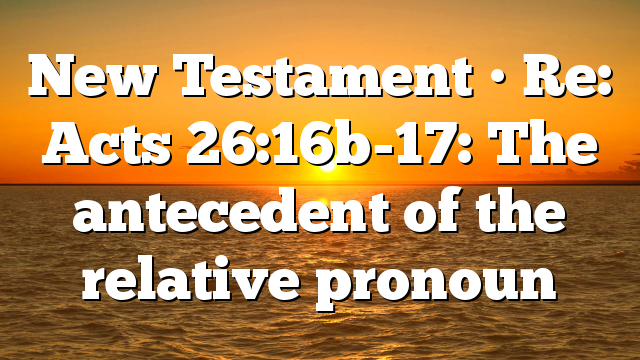2 Peter 2:2
An Exegetical Analysis of the Relative Pronoun Antecedent in 2 Peter 2:2 This exegetical study of An Exegetical Analysis of the Relative Pronoun Antecedent in 2 Peter 2:2 is based on a b-greek discussion from May 26, 1999. The initial query concerned the identification of the antecedent for the relative pronoun δι’ οὓς in 2…


